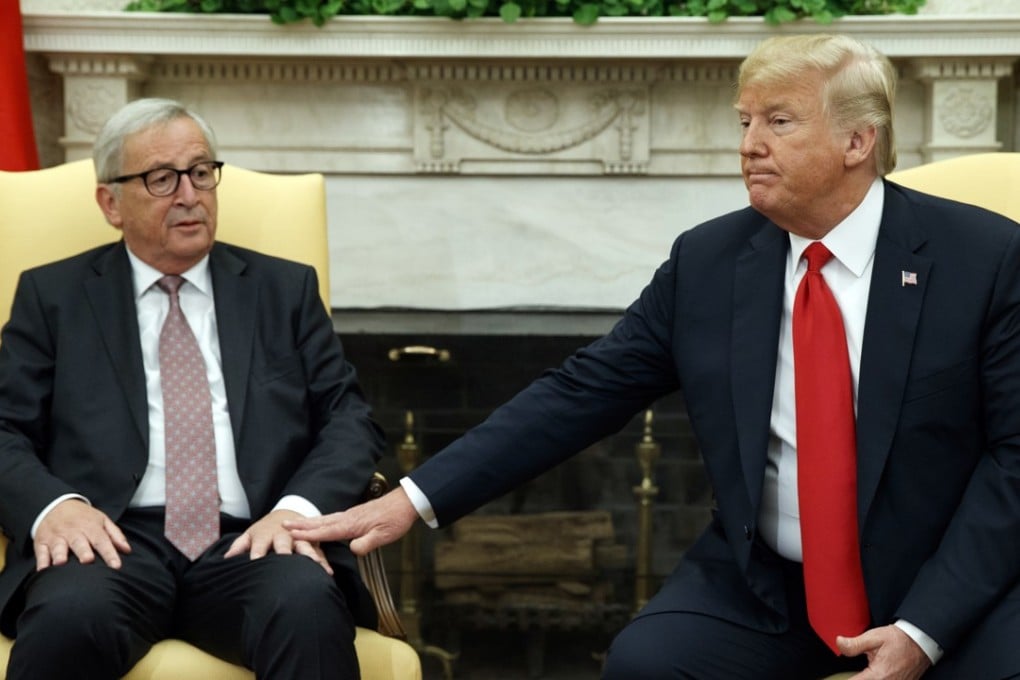Why Europe is not ready to take sides in the US-China trade war
Despite a recent agreement between Washington and Brussels last month, China’s fears of being ‘stabbed in the back’ have yet to come to pass

The European Union is not yet ready to join forces with the United States against China despite the recent rapprochement between Washington and Brussels, analysts have said.
The assessment came after the EU and US reached a deal late last month to suspend new tariffs and expand European imports of US goods after high level talks and negotiations, an agreement that was seen as a worrying sign for China amid its trade war with Washington.
The agreement reaffirms the alliance between the two sides, even though Beijing has stepped up is lobbying of the bloc, according to diplomatic observers.
“This is exactly the sort of outcome you would expect with a sort of balancing act,” said Jan Weidenfeld, an analyst of Europe-China relations at the Mercator Institute for China Studies in Berlin.
“I think what this shows is really that opportunities for a genuine alignment of European and Chinese global trade and investment policies remain slim.”
Over the past months, Beijing has been working to strengthen its ties with Europe but has also warned it not to turn against China.